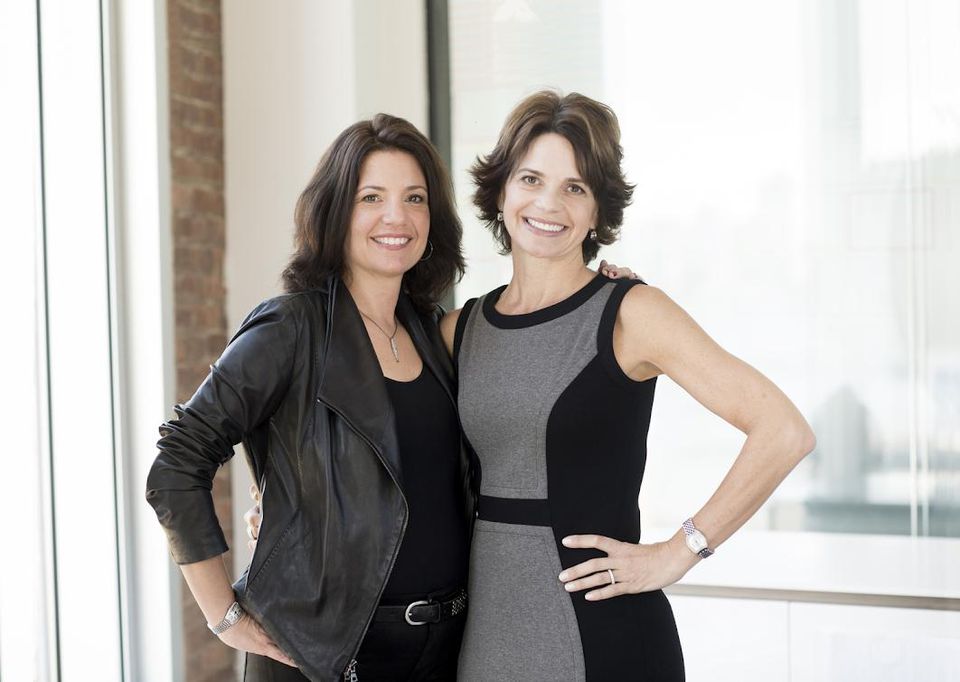Having a good idea, a smart strategy and a talented team is not enough to make a business successful. Individuals and teams will not perform to their full potential and companies will be less successful if there is not a strong corporate culture. Lisa McCarthy and Wendy Leshgold cofounded their training and coaching company, The Fast Forward Group, in 2013 to help companies foster high-performance cultures. They hired a team of executive coaches who lead workshops and individual coaching sessions at companies including Facebook, Google, NBCUniversal, Unilever, Spotify, VISA, Bloomberg and JP Morgan Chase. I spoke to the cofounders about entrepreneurship, leadership and their advice for creating corporate cultures that work.

Many startups don’t have human resources teams in place. How do you think they can set themselves up for success early?
Wendy Leshgold: Don’t hire too quickly—that was one of my first lessons as an entrepreneur. Be slow and conservative at the beginning. As a founder, you have to know your value proposition well before you can expect someone else to come in and understand it, too. When you do start bringing in new people, be open to their feedback.
What advice do you have for other women who hope to start their own businesses?
McCarthy: Make sure there is a need, and then create your product or service to fulfill it. Do our Fast Forward Vision exercise: “Fast forward” two years out and paint a specific picture of what success looks like. This should be inspiring and uncomfortable.
Leshgold: Do not let that nagging little voice in your head deter you—the one that says, “That will never happen. You could never do that.” Thank that voice for sharing, and do it anyway.
What are the most important characteristics someone needs to have to be successful in your role?
McCarthy: You need to be comfortable being uncomfortable. You have to care about people’s lives and helping them achieve success and happiness. You should be an inspiring communicator and coach.
Leshgold: You need to be a great communicator—be clear, crisp and inspiring. You have to have a vision for what success looks like and be able to articulate that to your team. And you have to have integrity. Do the right thing all the time even if it’s not the most profitable thing.
What do you think are characteristics that make a great leader?
McCarthy: A great leader is someone who is confident and humble, has a bold vision and is focused on growing the business and its people and has strong communication skills. She is candid in her feedback and believes in continuous improvement.
Leshgold: Great leaders have a bold and inspiring vision and they share this vision with so much clarity and conviction that others get inspired and enrolled in it too. I think great leaders take a stand for the greatness of others—both people on their team and clients. They push people to achieve their full potential and be their best.
What are three characteristics you look for when you’re hiring a new team member?
McCarthy: I look for positivity and optimism, resilience and a commitment to learning.
Leshgold: Capacity is really important to us. And what we mean by capacity is the ability not to obsess over things and be able to keep moving from thing to thing as needed. Can you work from a mindset that sometimes done is better than perfect? In a small company, it’s important to keep taking ground. I also look for passion and inspiration. How much do you believe in our mission? Because if you don’t believe in the mission, you can’t fake that. And to echo [McCarthy], resilience. Setbacks are inevitable and how you bounce back is key. Resilience is contagious. When one person is resilient, others catch it.
What’s the biggest lesson you learned at work and how did you learn it?
McCarthy: When one door closes, another opens. I left two leadership roles due to reorganizations. I learned not to take it personally and not to make up disempowering stories about my value or future. Each role prepared me for the next. I made meaningful contributions while I was there, and I built relationships I maintain today.
Leshgold: When I was an account executive at Ogilvy and Mather, I had a manager who marked up everything I did with a red pen. It drove me crazy. He pushed me and, despite my annoyance, he kept pushing. But I saw how much better I got at each of my reviews. It was about bringing rigor, discipline and intention to everything and never settling.
What is one thing that you wish you had known when you were starting out your career?
McCarthy: Pay attention to how you show up and treat people at work and at home. I had a wake-up call in my 30’s when I realized I was showing up as “busy” and unavailable. It had real costs to my relationships and the business. Technology has made this harder but, with discipline and intention, I believe there is enough time to do what is important. Being present is key to success and happiness.
Leshgold: I wish I had known that you don’t have to pick one thing to do for the rest of your life. Life is a series of journeys and chapters and each one builds on the next and helps you enrich the next chapter. I didn’t know that going in. I think I would’ve had more confidence and peace if I had known that.
What is the best advice you’ve ever received?
McCarthy: “You can do this.” I’ve heard this advice from mentors and friends multiple times in my life.
Leshgold: The best advice I ever received was from [McCarthy]. I had just had my second baby, and I knew that I was ready to do something different in my career. [McCarthy] sent me a New York Times article on executive coaching and said, “This made me think of you because I think you’d be really good at it.” Because it was her, I took that advice.
What is your business advice for other young professional women?
McCarthy: You can be successful in your whole life. Be thoughtful about how you define success and happiness, and then get the support you need to stay on track. Do not sell out. We are all responsible for creating a workplace where women can thrive and ascend through all career and life stages.
Leshgold: Think big and don’t let your fears and concerns get in the way of doing things that you’re passionate about. You can do way more than you think you can and it’s usually the stuff that gets in your head that gets in the way.































